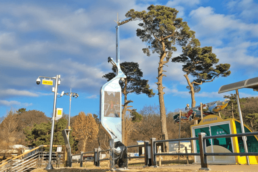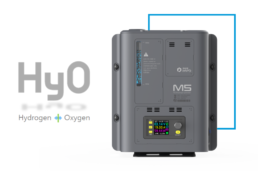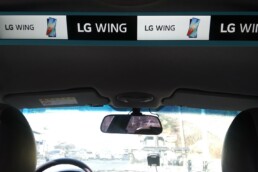South Korea is becoming one of the most vibrant nations in the world and a growing tourist destination. South Korea had come a long way since the Korean War when its national income per citizen was the same as Ghana’s. In 60 years, they have become one of the top economic powers in the world. South Korea now makes smartphones, TVs, laptops, and tablets. They even have an up-and-coming startup ecosystem in Korea. The success of South Korea, in turn, has created many Korean angels and VCs looking to invest their money in Korean companies. Korean Fundraising can be hard but here are some things to know.
Korean Fundraising 101 – the Basics for Raising Money in Korea
Raising venture capital in Korea is not easy. Many startups in Korea have a hard time raising that initial seed investment. This is because even for seed investments, many investors in Korea want to see growth or some form of traction along with sales. However, startups need that seed investment to show growth, traction, or sales. For example, growing your monthly visitors by creating content might be possible, but this means you will have less time to do marketing. Or you can generate sales but will be too busy working with clients or taking on projects instead of growing your brand.
So it becomes a kind of chicken and egg situation. This is why getting that initial seed investment is easy for those that know what the typical investor in Korea wants to see.
To be a great fundraiser in Korea takes a lot of skills that can’t be learned overnight. Throughout my years covering Korean startups and meeting great entrepreneurs, I have seen many great fundraisers get seed funding for their early-stage startups in Korea. Most were able to speak Korean and sell their idea to investors. However, even for these entrepreneurs getting funding in the next few rounds gets difficult. This can also be seen in the blockchain startup scene in Korea, where initial funding was easy through ICOs, but getting to the next level, series A, etc., is very difficult.
Lessons to learn from Korean CEOs

It will take some time to develop relationships with Korean VCs
When looking to develop a relationship with potential VCs in Korea, it is important to think of the process for the long term. Spend time researching and asking around your network to find the right VC. Most Korean VCs will not be able to speak English well; however, they have some base level of English. If you are targeting some of the bigger VC firms in Kore, they will have at least one partner that is fluent in English. It is important to develop a personal relationship with VCs and find ones that want to work with you, not just invest. So take time and get to know them and their interest. This will allow them to see who you are as a person. Be their friend first before you pitch them any ideas. They get hit up for investments every week, so to stand out, try to build a relationship with them that doesn’t center on funding.
Be on their Radar
Startups in Korea need to be able to show one of two things. Sales or growth. Having both is great, but you need at least one to get a VCs attention. If you sell a product or service, it will come down to the numbers, as in sales. If you are a startup looking to attract users, VCs will want to see your monthly active users. Push whichever side your startup is strong on. It is critical to be on their radar and for them to know exactly what you do. Even if they don’t invest in your company, they have a vast network that might.
Your mission is to be there for the VC and position yourself as the person to call if a particular issue happens or if they meet another VC they might want to connect you with. Therefore, show your skills and what you can bring to the table.
If you come from outside Korea, you must sell them on your network in your particular country. VCs in Korea want access to different ecosystems around the world. Make sure you position yourself as the guy that can get them into that particular market. VCs have their own portfolio companies and will see the value of potential expansions. If you are a startup already in Korea, show your value through your network. Show you have partnerships with companies outside of Korea since Korean investors want to see the potential to expand into different markets like Southeast Asia, Europe, or the States.
Go to as many meetings, events, and meetups as possible – Korean Fundraising 101
It is important to participate in every offline/online event because you never know who that person knows. Meetups and events will spring back up in Korea at some point. It is about building a vast network that will allow many pathways to investors in Korea. The meetings don’t have to be formal, Korea has many coffee shops, and a quick 15-minute sit down could go a long way. Events are also a great way to meet other entrepreneurs who have gotten funding. Getting close to them could lead you to their VC connections. The same goes for meetups, VCs will probably not be there, but companies they have invested in will be.
There are a few investor meetups in Seoul, but what you want to focus on are meetups organized by the Korean government. The Korean government has often matched Korean VC investments, so any events organized by the Korean government will have Korean VCs there. There is always some meetup in Seoul, especially regarding blockchain and cryptocurrency.
Sell the potential for global expansion
Korean VCs want to find the next big startup. A startup that will not only be big in Korea but the world. These startups are rare. Korean companies/startups tend to think small. Showing the VCs a bigger picture of the global market potential is important. When pitching to VCs in Korea, articulate your expansion plans. Remember to have big goals with big potential; these are the investments Korean VCs want to make. What Korean VCs currently find the most appealing is an expansion to the Southeast Asian market. The plan should be to dominate the Korean market first, then the Southeast Asian market, then China, then expand out West.
Go for a Convertible Note
When raising money in Korea, it is better to use a convertible note. It is simple and offers fewer complications. Startups in Korea that are financing rounds can quickly become complex and take time and money. Convertible note financing tends to be much faster, easier, and cheaper than priced rounds. In a priced round, actual ownership stakes in the company are sold. However, on a convertible note, the investment is considered a form of debt, meaning there is no need to create a second class of shares or issue common stock. What does this mean for the startup? Startups will avoid several complications, such as issues that could come up when dealing with the company’s valuation, stock option grants, and related tax implications. Ultimately, this allows startups in Korea to focus more of their time and energy on their startup to help it grow.
Look for partners, not just funding
A great fundraiser is not all about funding. True funding is the main goal, but it is also crucial to find partners along the way. A VC needs to like your company, and if they like your company, they should also want to be a partner. Korean VCs want to be a part of something. If they are unwilling to invest immediately, a partnership is another option. This could be your window to impress them and show your company’s potential. Also, there is so much money out there from the Korean government. It is possible to get that investment just by having great partners inside and outside Korea. We have met several entrepreneurs in Korea that first focused only on partnerships before seeking actual seed investments. A pitch deck looks great with a large network base to show companies believe in your product or service.
John
John is the Co-Founder of Seoulz. He has covered the Korean startup & tech scene for over eight years and has written over 700 articles regarding the Korean startup ecosystem. He has brought global attention to Korea's tech scene using Google SEO. Email him at john@seoulz.com
Related Posts
Can Korean Startups Enter the North Korean Market
January 15, 2023
Tips for Korean Americans Applying to Korean Companies
February 27, 2023






